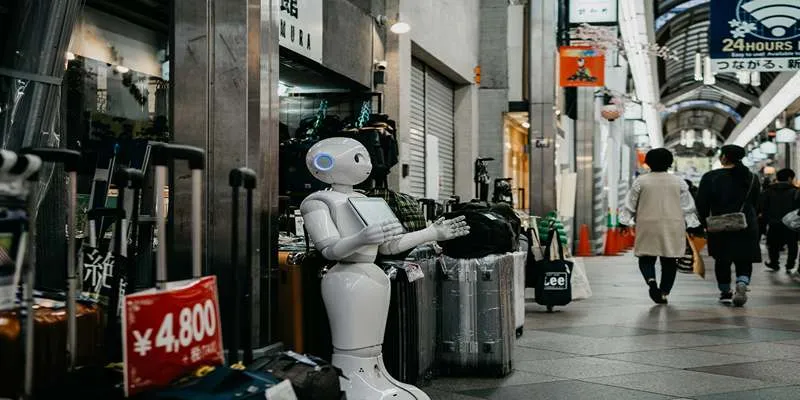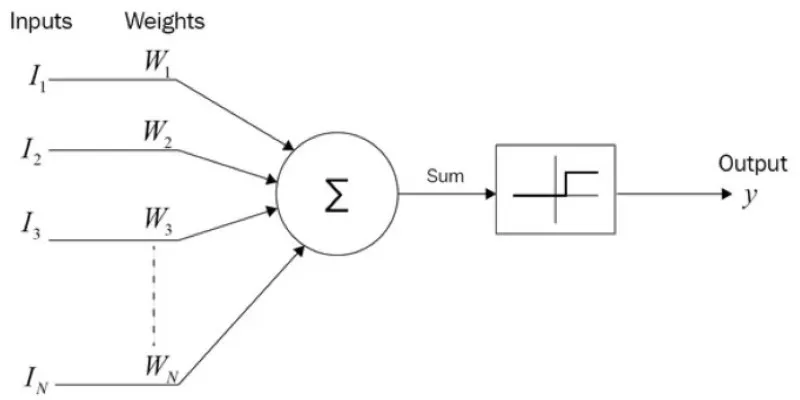Shopping was once simple — walk in, browse, and buy. But today, retail has changed completely. Behind the scenes, AI in retail is driving this shift, using data to create smarter and more personalized shopping experiences. It’s the reason online stores recommend products you didn’t know you needed or offer deals tailored to your habits.
This evolution didn’t happen overnight. Retailers saw the need to make shopping faster, easier, and more personal. With AI-powered recommendation systems, businesses can guide customers toward products that fit their needs, creating a shopping journey that feels intuitive, efficient, and far more engaging than ever before.
How AI in Retail Powers Recommendation Systems?
AI in retail is deeply tied to how recommendation systems operate. The process begins with data. Every click, search, purchase, and even time spent looking at a product creates valuable information. AI systems analyze this data with advanced algorithms to look for patterns in behavior. The more data they have, the more accurate they become.
Recommendation systems function in several different ways:
| Technique | Description |
|---|---|
| Collaborative Filtering | Clusters users with similar behaviors. If someone buys shoes and socks, others with similar shopping habits might see the same socks suggested to them. |
| Content-Based Filtering | Utilizes information about products to make similar suggestions based on the product’s attributes. |
Retailers don’t use these methods in isolation. They tend to pair them with hybrid models that offer even better recommendations. Amazon, for instance, is renowned for this tiered system, employing previous purchases, browsing history, and even what’s currently hot in a customer’s area to refine suggestions.
AI in retail is about more than selling products. It’s about creating an experience. AI-powered recommendation systems help customers feel understood without them having to explain their preferences repeatedly. This silent personalization increases customer satisfaction and keeps them coming back for more.
Real-World Impact of Recommendation Systems in Retail
The impact of recommendation systems goes beyond improving sales. It’s changing how brands interact with their customers. Large retail platforms like Netflix and Spotify have shown the world how addictive personalized recommendations can be — and traditional retailers have followed closely behind.

Online clothing stores now offer personalized outfit suggestions based on previous purchases. Grocery apps can predict what you’re likely to buy next based on your weekly patterns. Even furniture stores have adopted AI-driven tools to suggest products that fit your home style or previous choices.
AI in retail is also reshaping marketing strategies. Instead of sending mass promotions to all customers, recommendation systems allow retailers to send highly targeted messages. A customer who often buys fitness gear might receive suggestions for new workout apparel or supplements. Someone who shops for baby products might see deals on toys or child-friendly furniture.
The result is clear: retailers spend less on marketing while improving conversion rates. Customers feel like the shopping experience is tailored for them. It’s a win-win situation driven entirely by data and smart systems that learn continuously.
However, the effect of recommendation systems isn’t limited to online retail. Physical stores are beginning to integrate these tools into their customer experience as well. Smart displays can show personalized product recommendations based on a shopper’s loyalty card history or app data. Some stores even use sensors or apps to guide customers to products they might like — blending digital intelligence with real-world shopping.
Challenges of AI in Retail Recommendation Systems
Despite their power, recommendation systems in retail AI face several challenges. One of the biggest concerns is privacy. Customers are becoming more aware of how much data companies collect about them. Regulations like GDPR and similar laws worldwide have forced retailers to be transparent about their data practices. Customers expect personalization, but they also want control over their information. Balancing these two demands will shape the future of recommendation systems.
Another challenge is accuracy. While AI-driven recommendations can be impressive, they aren’t always perfect. Sometimes, customers receive suggestions that feel irrelevant or repetitive. This happens when systems rely too heavily on past behavior without accounting for changing preferences or context. Retailers are investing in more advanced machine learning models that can adapt to these nuances.
AI in retail is also beginning to leverage real-time data for recommendation systems. This means that instead of relying solely on historical data, AI can adjust recommendations based on what’s trending right now or what a customer is actively searching for. This shift toward real-time personalization will become increasingly important as customer expectations grow.
Future of AI in Retail Recommendation Systems
Looking ahead, AI in retail will likely expand into more immersive experiences. Virtual reality (VR) and augmented reality (AR) are emerging areas where recommendation systems can thrive. Imagine trying on clothes virtually and having an AI suggest matching accessories based on your style. Or walking into a smart store where AI adjusts the lighting or music based on your shopping habits.

AI-driven recommendation systems will also become more proactive. Instead of waiting for customers to search, AI will predict needs before they arise. Subscription boxes already hint at this future, sending curated products based on past preferences. This proactive approach could soon be standard across many industries, especially retail.
Conclusion
AI in retail is quietly transforming the way people shop, making every interaction smarter and more personal. Recommendation systems are now essential for building customer loyalty and driving sales. They help create seamless shopping experiences where customers feel understood without needing to explain their preferences. As technology advances, these systems will become even more accurate, proactive, and integrated into both online and physical stores. However, maintaining customer trust through transparent data practices will be crucial. The future of retail belongs to those who use AI not just to sell more but to create meaningful, personalized shopping experiences for every customer.
 zfn9
zfn9






















